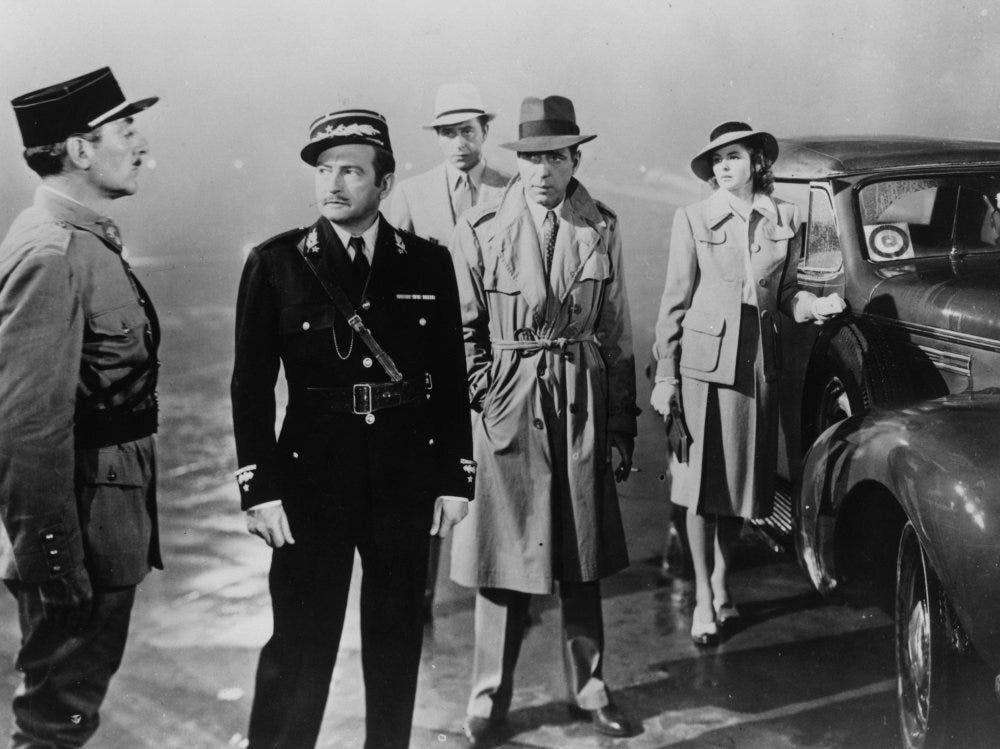WHY DO YOU POST?
Sometimes I think the theme of this newsletter should be father because I bring it up every 3000 words. Anyway, several years ago, when I was applying for my Green Card to move to the United States, my father went through my benign shitpost tier tweets and asked "Why do you post so much? They won't let you in if you say things like this online". His concern at that time was backed by evidence of people ending up in jail for critiquing the BJP government in India.
I did not take his original warning seriously of course. I was moving to the land of the free where posting was not a crime. But, now that several people with permanent residencies have been deported or arrested by ICE for posting and/or writing … joke’s on me. As for my original sin of posting too much – I've never been able to figure out why. It's not like I come from a family of academics or writers. I come from a square middle class background, where every rupee earned came from hard labour that would shatter the soul of a lazy poaster like me. I don't think anyone in my family has ever said anything wrong in public, even once. They knew better. Perhaps it is some kind of genetic memory passed down through generations that lived under British rule. Unfortunately it skipped me.
ART OF SELF CENSORSHIP
I saw someone on Substack post about how people in Taiwan are eager to participate in the democratic process because they are afraid of sliding back into authoritarianism. I've not been to Taiwan but I've not found this to be the case in most young democracies in south and southeast Asia. Perhaps Taiwan is the exception. What I am used to is people, the middle class especially, developing convoluted self-censorship mechanisms so they can live their life in peace while avoiding run-ins with the government. Sure, they may participate in democratic processes, but a lot of times, it is to avoid being shamed by their neighbors or to prove they are good citizens. Besides, as many Americans are finding out now – voting in an election is just the last mile of democracy. A step that does not matter much if every institution has been destroyed and every voter thinks they’re Mulder from the X-Files.
In India, within the arts, self-censorship is easier to spot. Writers and filmmakers often avoid dealing with topics that might invite scrutiny from the government. When such work gets produced it is often with assistance from international producers, and the work gets banned in the home country. This is what happened to British produced Indian movie Santhosh, which deals with police brutality and the caste system.
It is hard to spot such forms of self-censorship in partially functioning democracies, because self-censorship is anti-memetic in nature. It cannot be codified or recorded cause that would defeat the purpose. It has to begin at the smallest unit – family. Every country, authoritarian or not, has a collective unconscious made up of ideas that are forgotten because they are never spoken. Peoples who have been buried, art that has been suppressed, political disappearances no one talks about. During peace time, citizens apologize for the actions of their nation's collective unconscious. This is what liberal Americans have been doing for the last 20 years – starting at the end of the Iraq war and ending with the 2024 election.
The self-censorship of the public is more evident in hardline authoritarian places like Iran, where they even have special names for people who take it too far, and slip into delusion – vasat baz. I found this term while reading a great piece of investigative writing on Iranian director Asghar Farhadi and claims that he stole ideas for his films from his students:
Farahani described Farhadi as a vasat baz, a person who plays the middle—a concept so prevalent that one popular Iranian late-night talk show names a “Vasat Baz of the Week.” “He is not part of the dictatorship, but he is making deals with that dictatorship,” she said. “And yes, sure, all artists have to do that to be able to work and live and breathe there—but to what extent? Living in a dictatorship, we all have this instinct of lying to survive, but there is a point where you can go so far that you forget what the truth is.
SOLUTION BEGINS WITH ME
When I applied for my American passport two years ago, I remembered my father's words and decided to scan my Twitter. This was a couple of years after the first Donald Trump government had announced that they would be looking at social profiles of people who apply for visas. I decided to delete my most viral tweet which went "Someone at this party just called New York a second tier Chinese city." It’s benign, twee even. I’m sure right wingers would get behind the sentiment but something compelled me to delete it – maybe the gene to self-censor was within me after all.
You have to understand that this was a tough moment for the shitpoaster in me. A week after og tweet, the content of which was spoken by a friend at a party, I went to get lunch at my regular spot and the guy at the counter had a strange wide grin on his face. Just as I was about to place my regular order he recited the tweet verbatim to me and then gave me a 20% discount. A month later my friend
sent me a podcast that began with an analysis of my shitpoast. This was as good as it was going to get for a shitpoaster. And it was not even my best work.I'm glad I learned my lesson though. I don't say anything wrong. Long live USA.


